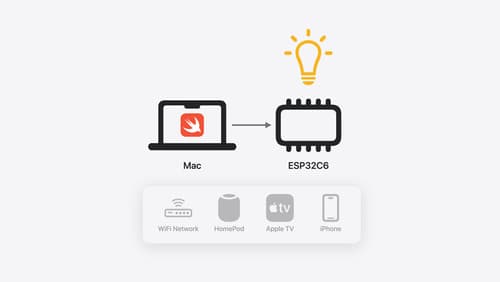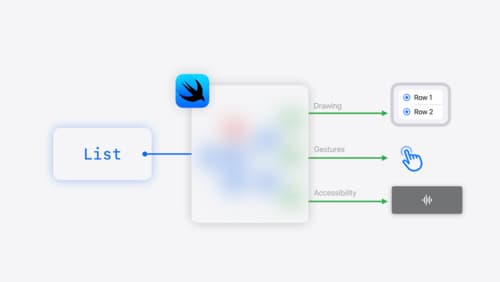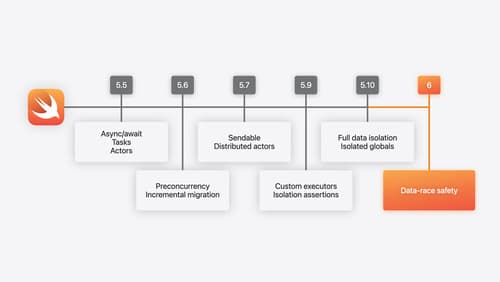static framework vs dynamic framework
Asked on 2024-10-08
1 search
In the context of Apple's WWDC, the discussion around static and dynamic frameworks can be related to the concepts of static and dynamic dispatch in Swift, as mentioned in the session "Explore Swift performance" (wwdc2024-10217).
Static dispatch is more efficient because it allows for optimizations at compile time, such as inlining and generic specialization. This is possible when the compiler knows exactly which function is being called. On the other hand, dynamic dispatch is necessary for enabling polymorphism and abstraction, as it allows the program to decide at runtime which function to call.
In terms of frameworks, a static framework is linked at compile time, which can lead to faster execution and smaller runtime overhead. A dynamic framework, however, is linked at runtime, which can provide more flexibility and reduce the initial app size, but might introduce some runtime overhead.
If you are interested in learning more about Swift performance, you can check the session Explore Swift performance (05:54) for insights into static and dynamic dispatch.

Go small with Embedded Swift
Embedded Swift brings the safety and expressivity of Swift to constrained environments. Explore how Embedded Swift runs on a variety of microcontrollers through a demonstration using an off-the-shelf Matter device. Learn how the Embedded Swift subset packs the benefits of Swift into a tiny footprint with no runtime, and discover plenty of resources to start your own Embedded Swift adventure.

SwiftUI essentials
Join us on a tour of SwiftUI, Apple’s declarative user interface framework. Learn essential concepts for building apps in SwiftUI, like views, state variables, and layout. Discover the breadth of APIs for building fully featured experiences and crafting unique custom components. Whether you’re brand new to SwiftUI or an experienced developer, you’ll learn how to take advantage of what SwiftUI has to offer when building great apps.

What’s new in Swift
Join us for an update on Swift. We’ll briefly go through a history of Swift over the past decade, and show you how the community has grown through workgroups, expanded the package ecosystem, and increased platform support. We’ll introduce you to a new language mode that achieves data-race safety by default, and a language subset that lets you run Swift on highly constrained systems. We’ll also explore some language updates including noncopyable types, typed throws, and improved C++ interoperability.
